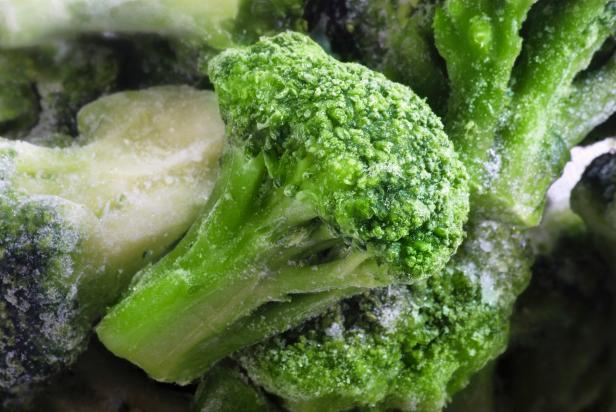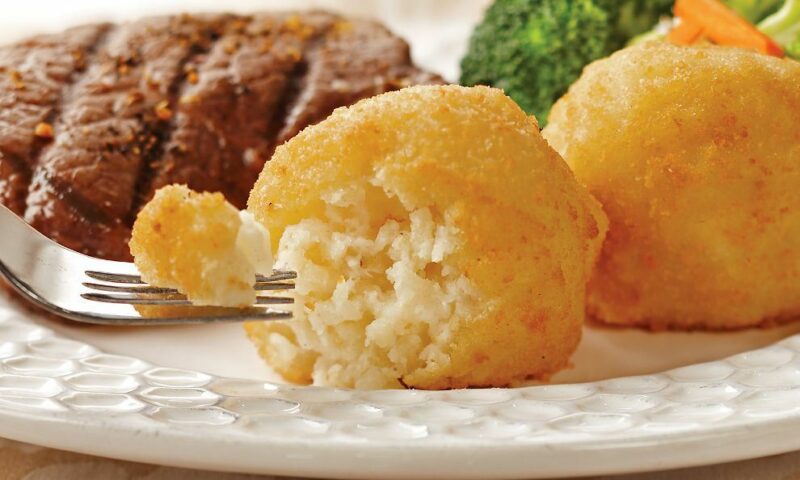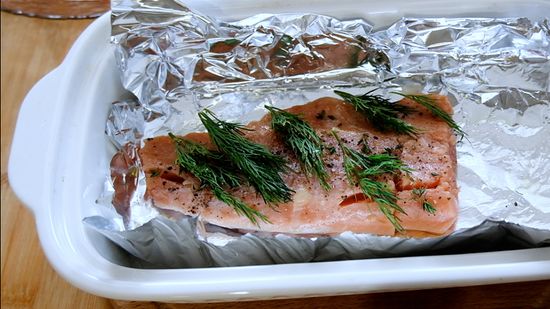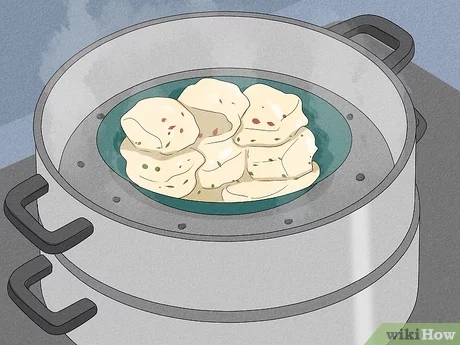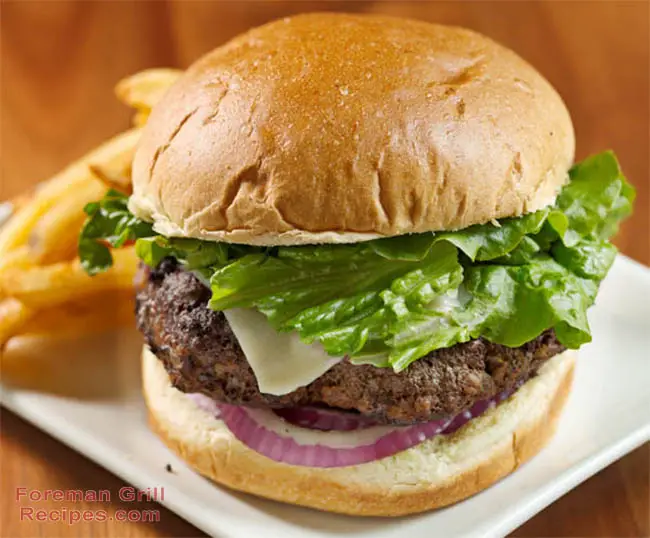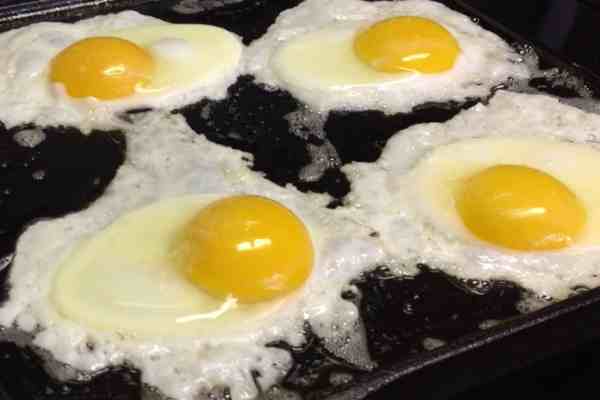Can You Eat Frozen Broccoli Without Cooking?
Frozen broccoli is a convenient and easy way to add vegetables to your diet. But have you ever wondered if it’s safe to eat without cooking? Read on to find out.
Introduction
Broccoli is a cruciferous vegetable that is a great source of vitamins, minerals, and fiber. It can be eaten raw, steamed, roasted, stir-fried or boiled. However, many people prefer using frozen broccoli for its long shelf-life and easy preparation.
The popularity of consuming raw food has also been on the rise. This is because raw food retains more nutrients than cooked ones. As freezing is a form of preserving food, does this mean frozen broccoli is safe to consume without cooking it? Let’s find out.
Freezing and Nutritional Value
Frozen broccoli is made by blanching the vegetable in boiling water, then quickly cooling it down in an ice bath. The cooled broccoli is then packaged and stored at below-freezing temperatures.
This process helps preserve the nutritional value of the vegetable. According to research, frozen vegetables are as nutritious as their fresh counterparts if they are not cooked after thawing.
The same study found that fresh broccoli lost more than 50% of its vitamin C content when cooked. Frozen broccoli, on the other hand, retained more than 90% of its vitamin C content when cooked after thawing.
In addition, frozen vegetables are available year-round and often lower in cost than fresh produce.
Potential Health Risks
While eating raw vegetables is a healthy option, it does come with potential health risks.
Raw vegetables can harbor bacteria such as Salmonella and E. coli, which can cause food poisoning. Studies have shown that these bacteria can survive on the surface of broccoli, even after washing.
Consuming contaminated raw vegetables can lead to symptoms such as fever, diarrhea, and stomach cramps. In severe cases, it can even result in hospitalization.
Freezing vs. Cooking: Nutritional Value Comparison
The nutritional value of frozen broccoli compared to fresh and cooked broccoli may surprise you.
- Fresh broccoli contains the highest amount of vitamin C but loses most of its vitamin C content after cooking.
- Cooked broccoli has lower levels of vitamin C but more bioavailable calcium than fresh or frozen vegetables due to the cooking process.
- Frozen broccoli retains more nutrients than fresh broccoli after thawing and offers a convenient way to consume veggies during off-season months.
To get the best balance between optimal nutrient value and food safety when consuming vegetables, one should consider a combination of consuming vegetables cooked and raw.
How to Safely Consume Frozen Broccoli
To reduce the risk of harmful bacterial contamination when eating frozen broccoli or any other vegetable, you should follow a few basic safety guidelines:
- Always wash hands before handling any vegetable or cooking utensils
- Defrost the frozen broccoli in a refrigerator
- Avoid allowing the vegetable to sit at room temperature before cooking it
- The recommended temperature for cooking frozen vegetables is 165°F to kill off harmful bacteria
- Adding an acid-based dressing or sauce that contains vinegar, citrus juice, or lemon juice can also help kill bacteria and make frozen vegetables safer to consume
- Spread the frozen florets on a baking sheet for independent freezing. Freezing the florets separately will make it easier for you to use only the amount you need which will reduce food waste.
If you follow these guidelines when handling and cooking frozen broccoli, it should be safe to consume both raw and cooked. More so, it will significantly reduce the risk of getting infected.
Ways to Cook Frozen Broccoli
There are several simple ways to cook frozen broccoli that do not require extensive preparation time or even baking.
Here are some popular options:
- Microwave: Place the frozen broccoli in a microwave-safe dish with a little water. Cover, then microwave on high for up to four minutes or until tender.
- Steaming: Pour a small amount of water into a saucepan. Add the thawed florets into a steam basket placed inside the saucepan. Cover and cook for 2-4minutes until soft enough. Sprinkle with lemon juice after cooking
- Stir-frying: Heat oil in a skillet over medium-high heat. Add garlic and minced onion to your liking and stir fry for about 1 minute before adding in the thawed florets which should be cooked for 2-4 minutes all together with frequent stirring.
- Boiling: Bring water to boil in a large saucepan then add add salt according to taste preference. Add the thawed florets to boiling water and cook, stirring occasionally so that they do not stick together. Cook for about 2-4 minutes or until tender. Drain in a colander and allow excess water to drip away before serving
- Roasting: Preheat the oven to 400 degrees Fahrenheit, spread the thawed florets on a baking sheet, and drizzle with olive oil. Sprinkle a little salt and pepper over the broccoli as desired. Place the baking sheet in the oven and let the broccoli roast for about 10-15 minutes.
Beyond The Basic Recipes
If you are looking for more creative ways to enjoy frozen broccoli, you can try some recipes that feature it as an ingredient.
Here are some ideas:
- Soup and stews: Add frozen broccoli as a star ingredient in your soup like broccoli cheddar soup or cheesy vegetable soup
- Casseroles: Top dishes like mac and cheese or tuna noodle casseroles with slightly thawed frozen broccoli florets before baking them.
- Pasta dishes: Toss thawed broccoli into spaghetti aglio olio or place it inside lasagna filling before putting it in the oven
Summary: Should You Eat Frozen Broccoli Without Cooking?
In summary, choosing frozen broccoli is safe and convenient. Freezing does not damage nutrient quality but gives more cooking options compared to fresh vegetables. While you can eat frozen broccoli without cooking it, there are potential health risks. So make sure to practice safe food hygiene by washing your hands, defrosting safely, and cooking properly.
Final Thoughts
By now, you have learned that whether or not you can eat frozen broccoli without cooking it is a nuanced issue. While frozen broccoli offers many advantages in the kitchen, including convenience and retention of nutrients, consuming it raw or barely cooked comes with potential health risks. To maximize the benefits of frozen broccoli and stay safe, always ensure to use it in appropriate ways.
Frequently Asked Questions
Is it safe to eat frozen broccoli without cooking it?
Yes, it is safe to eat frozen broccoli without cooking it. Frozen vegetables undergo quick-freezing processes that help preserve their nutrients and flavors. Eating frozen broccoli without cooking it can offer many nutritional benefits like vitamins C and K, fiber and antioxidants.
What are the potential risks of eating frozen broccoli without cooking it?
There are no significant risks associated with eating frozen broccoli without cooking it. In some cases, bacteria or other contaminants can be present on the surface of veggies, but this is not different from fresh produce. Washing the frozen broccoli before consumption helps reduce the risk of contamination.
How should I prepare frozen broccoli for consumption?
You can prepare frozen broccoli in various ways, such as:
– Steaming: Place the broccoli in a steamer basket over boiling water for 5-7 minutes
– Microwaving: Put the broccoli in a microwave-safe dish with water and microwave on high for 3-5 minutes.
– Roasting: Preheat an oven to 425°F, toss the broccoli spears with olive oil and spices, and roast for 15-20 minutes.
Is there any difference between fresh and frozen broccoli nutritionally?
Frozen broccoli can be as nutritious as fresh broccoli or even more so since they are picked at peak ripeness and flash-frozen immediately. Freezing preserves most of the nutrients present in previously fresh produce. However, long storage times can slowly reduce some vitamins’ levels, but this is not significant enough to warrant concerns about nutrition loss.
